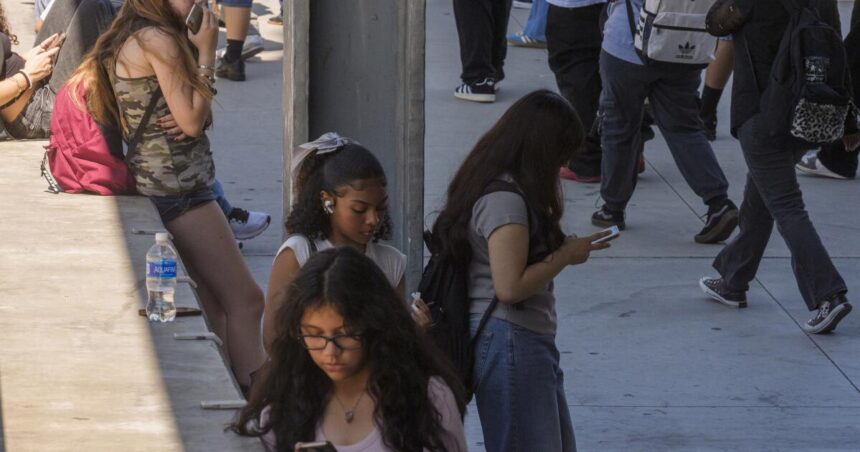Instagram is making teen accounts private by default in an attempt to make the platform safer for kids amid a growing backlash over the impact social media has on young people’s lives.
Starting Tuesday, anyone under the age of 18 who signs up to Instagram in the United States, Britain, Canada and Australia will be assigned a restricted teen account, and those with existing accounts will be transitioned over the next 60 days. Teens in the European Union will see their accounts adjusted later this year.
Mehta acknowledged that teenagers may lie about their age and said the company will require age verification in more cases, such as when trying to create a new account on an adult’s birthday. The Menlo Park company also said it is building technology to proactively identify teen accounts pretending to be older and automatically redirect them into restricted teen accounts.
Teen accounts will be private by default. Private messages will be restricted so teens can only receive messages from people they follow or are already connected to. Mehta said “sensitive content” such as videos of people fighting or advertising cosmetic surgery will be restricted. Teens will also receive a notification if they spend more than 60 minutes on Instagram, and a “sleep mode” will be enabled that turns off notifications and auto-replies to direct messages between 10pm and 7am.
These settings will be on for all teens, but 16- and 17-year-olds will be able to turn them off. Children under 16 will need parental permission.
“The three concerns we’re hearing from parents are that their teens are seeing content they don’t want to see, they’re being contacted by people they don’t want to be contacted by, and they’re wasting their money. There’s a lot of that on the app,” says Naomi Gleit, head of product at Meta. “So, teen accounts are really focused on addressing those three concerns.”
The announcement comes as the company faces lawsuits from dozens of U.S. states that allege it harmed young people and contributed to a youth mental health crisis by knowingly and knowingly designing features on Instagram and Facebook to get kids addicted to its platforms.
In the past, Meta’s efforts to address teen safety and mental health on the platform have come under criticism for not going far enough in changes. For example, kids are notified after 60 minutes of use on the app, but they can avoid the notification and keep scrolling.
However, unless a child’s parents turn on “parental supervision” mode, parents can limit the time their teens spend on Instagram to a specific amount of time, such as 15 minutes.
With the latest changes, Meta gives parents more options to monitor their children’s accounts. If you’re under 16, you’ll need a parent or guardian’s permission to change the settings to something less restrictive. To do this, set up “Parental Monitoring” on your account and connect with your parent or guardian.
Meta’s global president, Nick Clegg, said last week that the company had introduced it in recent years.
Gleit said teen accounts would create “a huge incentive for parents and teens to set up parental monitoring.”
“Parents will be able to see who is messaging their teen through Family Center and hopefully have conversations with their teen,” she said. “If bullying or harassment is occurring, parents will be able to see who their teen is following, who is following their teen, who their teen has messaged in the last seven days, and hopefully be able to have those conversations and help them navigate this very difficult situation online.”
US Surgeon General Vivek Murthy said last year that tech companies were putting too much of a burden on parents to keep their children safe on social media.
“We are asking parents to manage rapidly evolving technologies that are fundamentally changing how their children think about themselves, how they form friendships, and how they experience the world — technologies that, incidentally, previous generations have never had to manage,” Murthy said in May 2023.
Ortutai is a contributor to The Associated Press.









